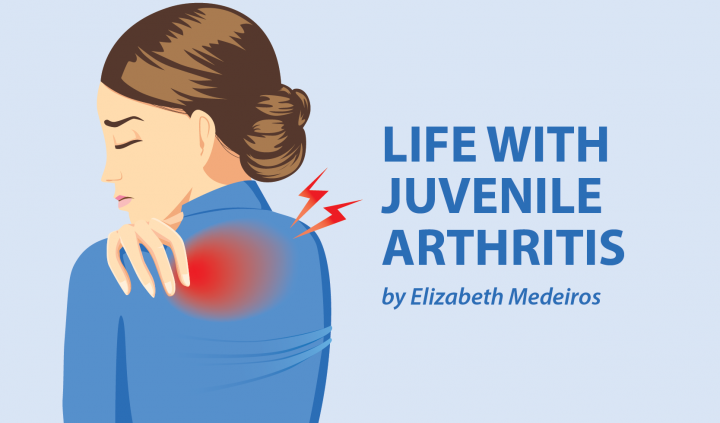I had a rough night recently. Despite feeling exhausted, I couldn’t stay asleep.
I woke up every hour to a throbbing hip from lying on my left side, a painful jaw from resting on my right, or overly stiff knees from staying on my back. I couldn’t win — no matter how I shifted or how many pillows I used, I couldn’t get comfortable. At 4 a.m., I was too overtired to sleep. I was still awake at sunrise.
Unfortunately, nights like this are common when you have juvenile arthritis (JA). While everyone has a bad night once in a while, people with JA face a constant battle for sleep. For some, getting to sleep can be an issue. For others, staying asleep is the hard part. Or they could be unlucky and suffer from both problems.
Why does it happen?
Studies have shown that kids with JA are more likely to suffer from sleep disorders than healthy children. The most obvious reason is pain. Many kids wake several times a night needing to stretch because the inactivity of sleep causes stiffness.
Fatigue can affect sleep, as well. If they’re resting or napping a lot during the day, chances are they won’t sleep for long stretches at night. My desperately needed weekend naps can sometimes cause issues at night.
What can help?
Eight hours of inactivity doesn’t help arthritic joints. But there are ways to make sleep easier for kids. I’ve found that the following regular routine can help: A warm bath, dimming the lights, and going to bed around the same time lets my body know it’s time to unwind. Avoid giving medicines that can interfere with sleep, such as prednisone or hydroxychloroquine, near bedtime, when possible.
Provide your child with extra pillows to elevate their knees or give additional neck support. I have special pillows for joint stability, but my favorites are my small collection of Squishmallow pillows. I find them soft, yet firm enough to rest even the most painful joints on — they’re the only pillows I can use when my jaw is flaring. Plus, they’re adorable and affordable.
My last tip is to try to limit naps. While kids with JA need to rest, too much shut-eye will make it hard to sleep at night. Limit the duration of naps and stop them nodding off too close to bedtime. On rest days, encourage your child to be active within reason. Even sitting up to craft, read, or play a board game can help. Of course, these tips might be work when your kid is in the middle of a nasty flare.
Does it get better?
It can take some time to find the right answer, but families shouldn’t lose hope that things will get better.
I’ve found that sleep and joint pain go hand in hand; the less sleep I get, the worse my joints feel, and the more painful my joints, the greater my sleep deprivation. At times, it felt like a never-ending cycle, but it eventually got better. When I started taking a treatment that effectively eased my pain, my quality of sleep drastically improved.
As I mentioned above, kids with JA are more likely to have sleep disorders. If your child’s sleep problems persist, you might consider consulting a sleep specialist.
Unfortunately, like many aspects of living with JA, no quick or easy fixes exist. Sleep disturbances may wax and wane as your child’s condition fluctuates. But understanding why they happen is the first step toward addressing the issue.
Work with your child’s rheumatologist to find the best treatments and to create a sleep routine at home that enables your child to get a good night’s sleep.
***
Note: Juvenile Arthritis News is strictly a news and information website about the disease. It does not provide medical advice, diagnosis, or treatment. This content is not intended to be a substitute for professional medical advice, diagnosis, or treatment. Always seek the advice of your physician or other qualified health provider with any questions you may have regarding a medical condition. Never disregard professional medical advice or delay in seeking it because of something you have read on this website. The opinions expressed in this column are not those of Juvenile Arthritis News, or its parent company, BioNews Services, and are intended to spark discussion about issues pertaining to juvenile arthritis.

